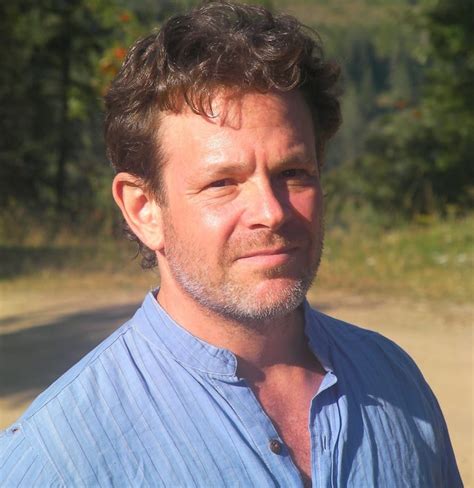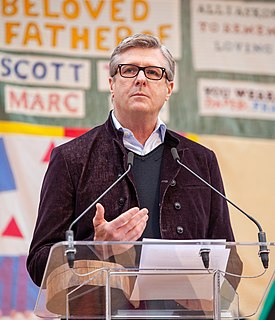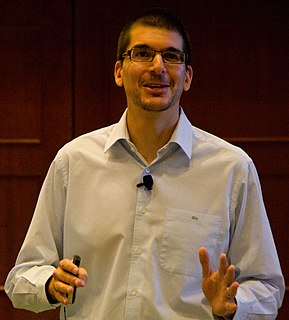A Quote by Richard Branson
If you get into entrepreneurshi p driven by profit, you are a lot more likely to fail. The entrepreneurs who succeed usually want to make a difference to people’s lives, not just their own bank balances. The desire to change things for the better is the motivation for taking risks and pursuing seemingly impossible business ideas.
Quote Topics
Related Quotes
You can be entrepreneurial even if you don’t want to be in business. You can be a social entrepreneur focused on the not-for-profit sector. You can be an agriculture entrepreneur if you want to change how people think about farming. You can be a policy entrepreneur if you want to go into government. The idea of an entrepreneur is really thinking out of the box and taking risks and stepping up to major challenges.
Make sure you comfort everybody, because you have so much power. The influence you do have, make sure you use that for the right things that's going to propel you, and propel your company. It's not always about making profit. I know y'all know how to make profit, and I know that's what it's about! But I'm very happy that I can come here and tell you I'm someone that has not been driven by the profit. You can succeed with the people.
Philosophical argument, trying to get someone to believe something whether he wants to believe it or not, is not, I have held, a nice way to behave towards someone; also it does not fit the original motivation for studying or entering philosophy. That motivation is puzzlement, curiousity, a desire to understand, not a desire to produce uniformity of belief. Most people do not want to become thought-police. The philosophical goal of explanation rather than proof not only is morally better, it is more in accord with one's philosophical motivation.
The same products, services or technologies can fail or succeed depending on the business model you choose. Exploring the possibilities is critical to finding a successful business model. Settling on first ideas risks the possibility of missing potential that can only be discovered by prototyping and testing different alternatives.
People who graduate are more resilient financially, and they weather economic downturns better than people who don't graduate. And, throughout their lives, people who graduate are more likely to be economically secure, more likely to be healthy, and more likely to live longer. Face it: A college degree puts a lot in your corner.
I've been fortunate to have had the life I had prior to Hollywood. I wasn't starving, I was going to eat the next day. I came to Hollywood wanting a career that had longevity, and I wasn't afraid to take risks because I had a dollar in the bank. I wasn't driven by money as much as I was driven by making a successful transition. And I was smart enough to know that I certainly didn't have all the answers and I needed to surround myself with smart people and be willing to take risks and be willing to fail.
































